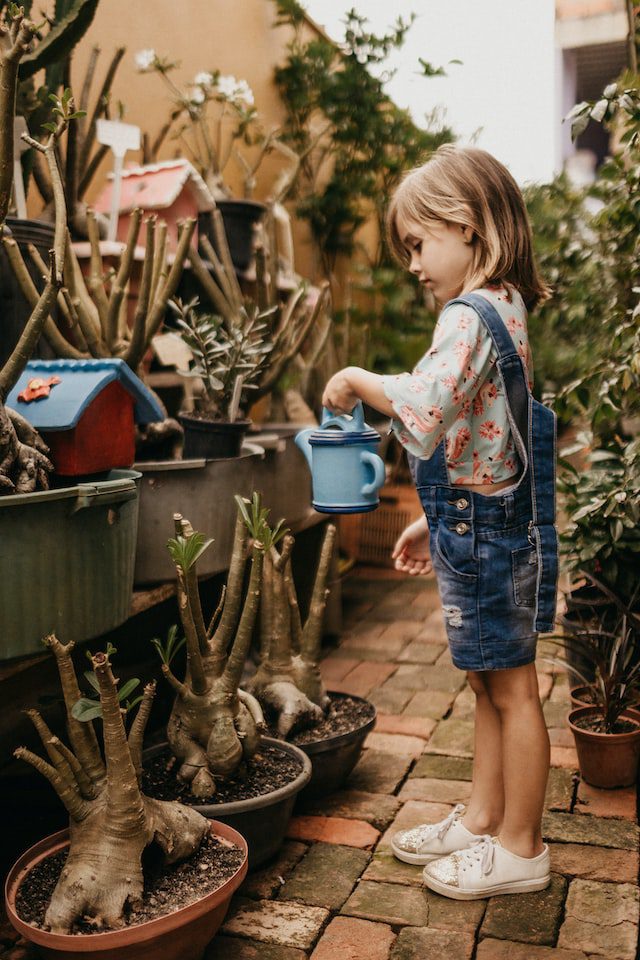Do you want to create a self-maintaining home but don’t know where to start? The answer doesn’t require any complex technology. If you are considering switching to a smart home hub in the hope your home will become spotless and organized overnight, you need to think again.
Indeed, smart technology can help with some elements, such as vacuuming with a Roomba robot or even managing temperatures. But you can’t expect the smart home hub to make the beds, remove clutters, or even help create a healthy interior. These are tasks that can only be entrusted to human beings.
So, what does self-maintenance mean if people still have to do most things? Self-maintenance here reflects the principle that everyone inside your home can be responsible for making it a friendly, clean, and enjoyable space. How does it happen? The answer is simple: Involve your children in the chores! Indeed, as children are part of the household, it would seem only fair for them to participate in the maintenance process.
Table of Contents
Involving children in household tasks
Allowing children to help out around the house with chores can reduce your maintenance tasks and provide a wonderful opportunity for them to learn important skills. From a young age, children are capable of helping with a variety of tasks. From chores like folding laundry, vacuuming, and putting away dishes to taking out the garbage and yardwork, there is something for everyone. Not only does this help create a low maintenance home for you, but it also helps teach children the value of hard work and responsibility.
Another major benefit of involving children in household tasks is teaching them how to care for themselves. Teaching them how to do laundry, cook simple meals, and clean their rooms gives them the skills necessary to maintain their own home when they become adults. By involving them in the cleaning process, you are instilling a sense of pride in their home and an appreciation for keeping it clean and tidy.
Show direct benefits to their efforts
One of the best ways to encourage children to take on household tasks is to show them the direct fruits of their efforts.
When a child helps feed the chickens, they see the results of their work in a tangible way, as they can collect the eggs. With simple solutions such as an outdoor chicken feeder, even younger and smaller children can easily help look after the hens, for example.
Similarly, when a child puts away their toys and books, they can easily find them again, reinforcing the importance of tidiness. Too many kids are prone to lose or break their favorite toys through cluttering that they are guaranteed to perceive the direct benefits of their actions.
By showing children the results of their work, they can better appreciate the value of helping out around the house.
Increasing responsibility and rewards
When children are ready to take on more responsibility in the home, it’s important to increase the rewards they receive. This serves as an incentive for children to keep up the good work. It reinforces the idea that helping with chores should be valued and rewarded. When it comes to rewards, it’s best to focus on non-material items. For example, you could provide praise, hugs, or extra play time when they complete tasks. These types of rewards can also serve as a way to bond with your child and make them feel like part of the family. You could also give them special privileges, such as having their choice of dinner or being allowed to pick out their own clothes for the day.
Of course, small treats or allowances can be given too. The main focus should be on positive reinforcement for their hard work. By gradually increasing the responsibilities and rewards for completing household tasks, children can learn how to manage and establish a self-maintaining house.
Making it everyone’s job
Household tasks should be a shared responsibility among all family members, regardless of age. Having a self-maintained home means that everyone needs to be involved in the upkeep and upkeep of the home. When children understand that housework is a shared responsibility, they feel respected and take ownership of their part in helping out.
Parents should make it clear to their children that maintaining the house is a job everyone needs to do. Children are more likely to participate when they see that their parents take responsibility for their part in keeping the house tidy. Showing your children that you value their contributions will help to foster a sense of pride and self-reliance in them.
Letting children help with household chores is a great way to teach them essential life skills such as time management, organization, and teamwork. When children are given age-appropriate responsibilities, they learn the value of hard work and become more independent and self-sufficient. Use a chore chart with stickers to make it fun.
When parents and children work together to keep the house in order, it becomes easier to keep the home running smoothly and efficiently.
Featured Photo by Jonathan Borba on Unsplash




